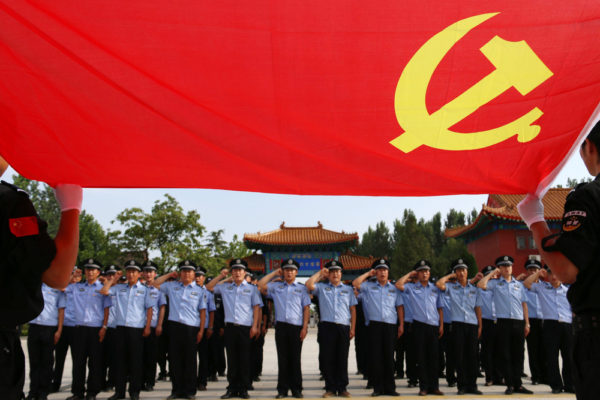
Tyler Cowen recently interviewed wealthy philanthropist David Rubenstein and, as with most Cowen interviews, the conversation ranged over many topics. I found most of them interesting.
What particularly caught my eye, given current issues, was Rubinstein’s fear of China. Here’s part of the conversation.
COWEN: Within, say, a 25-year time horizon, what do you think is the greatest risk to American prosperity?
RUBENSTEIN: Probably the rise of China. China is a bigger population than we have by three times. Given the fact that they have a different type of capitalist system than we do — but they have a capitalist system, I would say — given their population base and their technology strengths, I think that we will have to recognize at 25 years from now, it’s unlikely we’ll be the biggest economy in the world. If we’re not the biggest economy in the world, it’s unlikely we can support the biggest military in the world and unlikely we’ll be the biggest geopolitical power in the world.
Tyler often wants to move quickly to the next issue that interests him but he, like me, didn’t find this persuasive. So he probed:
COWEN: But how would that harm our prosperity? I can see it might be bad for smaller Asian nations, bad for Taiwan, obviously, but many others. But why would we be worse off as economic entities?
RUBENSTEIN: Generally, the most prosperous countries tend to be ones that are leaders in, let’s say, their given area. If we’re not the leader in technology and we’re not the leader in financial services because those worlds have shifted to China, we probably won’t get the profits and the most talented people coming here, and a lot of other things that you need to be a prosperous country.
These are all things you need to be a prosperous country? Seriously? Would Rubenstein say that Canada, Japan, Germany, and Switzerland, to name four, are not prosperous countries?
Rubenstein continues:
We’ve been the biggest economy in the world since 1870, and probably, in about 10 years or so, as measured by GDP, we won’t be. By purchase [sic] price parity, we’re already not the biggest.
True, but prosperity and size are two different things.
Unfortunately Tyler didn’t probe further.
I wrote here about why I don’t see China as an economic threat to us. I do see it as a military threat to countries around it. But it’s not a threat to us militarily either. The Pacific Ocean is awfully handy.


READER COMMENTS
Frank
Nov 17 2021 at 9:54pm
What is an economic threat? The other side can produce goods and services like yours, so the terms of trade decline. This is not even nearly the case with China. The opposite, the opposite is the case.
What is a military threat? The other side wishes to take big risks. Really?
Mark Z
Nov 18 2021 at 2:33am
I have no disagreements, other than with the spelling in the text (you use Rubinstein a few times instead of Rubenstein). David Rubinstein is a classical pianist.
Apparently Rubenstein’s mother made him take piano lessons because he has almost the same name as another famous pianist, Arthur Rubinstein. “When David Rubenstein was a boy, his mother sent him for piano lessons. She was sure the name Rubenstein—because of pianist Arthur Rubinstein—conveyed talent. David’s piano teacher later called and told his mother to save her money.”
Probably for the best, it’d be more confusing still to have two classical pianists, one David Rubinstein and the other David Rubenstein.
David Henderson
Nov 18 2021 at 9:14am
Thanks for the correction.
Yaakkov
Nov 18 2021 at 10:28am
Instead of disputing their worries, we should offer them a remedy: accept more immigrants so that the economy will grow faster.
Mactoul
Nov 18 2021 at 8:33pm
Perhaps Rubenstein believes that American prosperity depends upon military superiority. Dollar is worldwide accepted which ensures that American government can finance its deficits very cheaply.
Comments are closed.